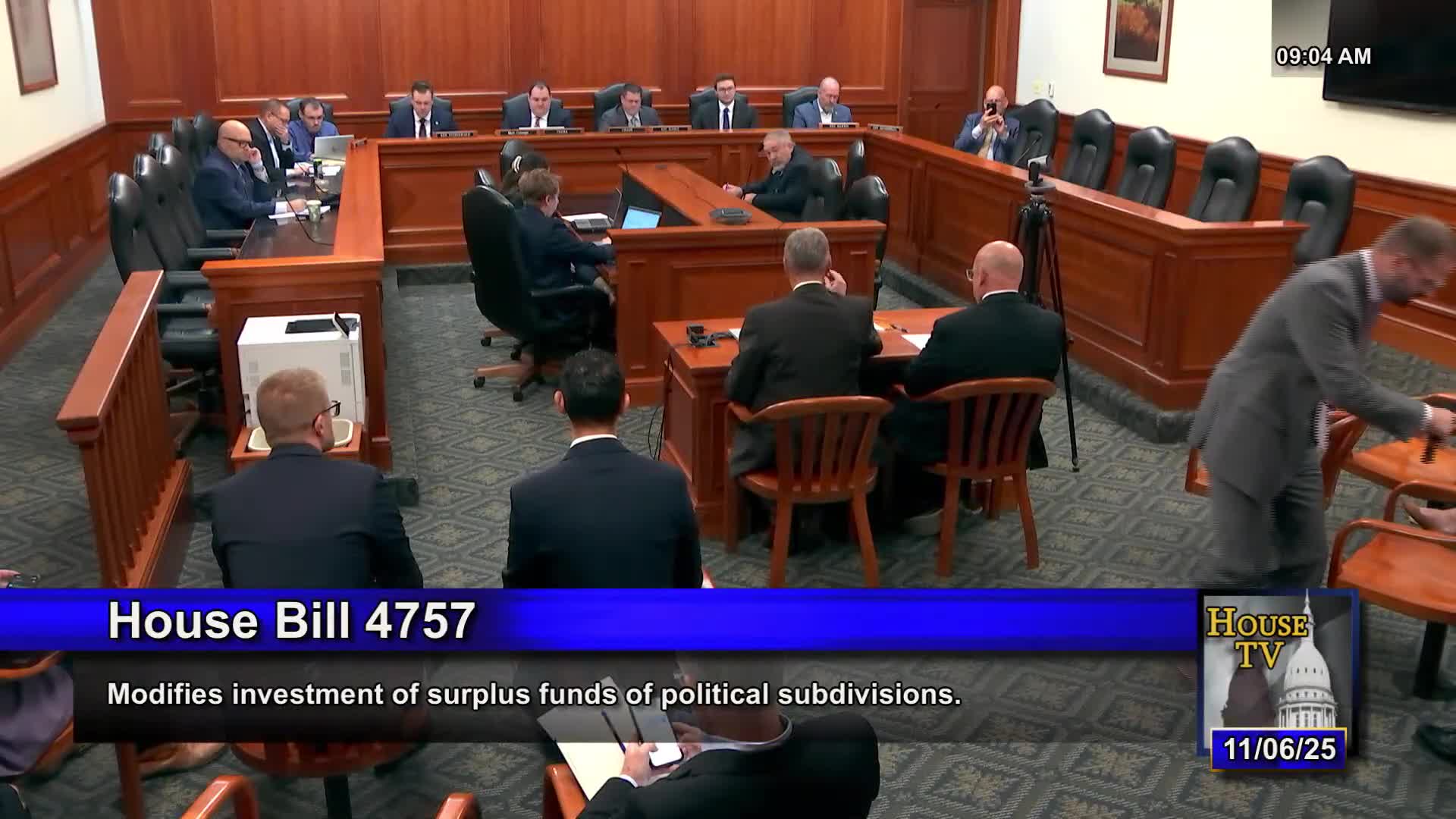Committee hears proposal to broaden local governments' investment options, with safeguards
Get AI-powered insights, summaries, and transcripts
Subscribe
Summary
Representative Brad Sloff told the House Government Operations Committee a bill to broaden allowable local-government investments would expand options such as out-of-state time deposits, limited-term corporate bonds and out-of-state municipal bonds while keeping written local policies and annual reporting to the Department of Treasury.
Representative Sloff introduced legislation intended to expand the range of investments available to local units of government while preserving safety, liquidity and public transparency.
Representative Brad Sloff told the committee the bill would broaden permissible investments beyond the narrow set currently allowed under Michigan law and would continue to require that local units adopt a written resolution and an annual approval policy and report to the Department of Treasury. "When a local unit of government chooses to invest public funds, they would continue to do so by resolution ensuring ... transparency," Sloff said.
John Globinski, Grand Rapids city treasurer, testified that Michigan’s Public Act 20 can be more restrictive than necessary and described specific additions he supports, including out-of-state time deposits insured by federal depository insurance, corporate bonds with a maximum five-year term and high ratings, and municipal bonds issued outside Michigan when in-state supply is oversubscribed. Globinski said those steps would allow institutional buyers such as Grand Rapids — which he said has large reserves — to capture incremental yield without materially increasing risk. He gave a numerical example: "If I took $500,000,000 of Grand Rapids reserve funds, if I only got an extra 25 basis points ... we'd get another $1,250,000 of interest earnings a year."
Witnesses and committee members emphasized several safeguards written into the draft language: investments would be limited to short maturities for higher-risk asset classes; corporate debt would require purchasing only as a qualified institutional buyer (QIB) and would be restricted to securities rated at or above a specified level; investment activity would be subject to written local policy and annual reporting audits; and smaller units would be encouraged to use pooled options such as Michigan CLASS or to consult county treasurers and certified public-funds investment managers for advice.
In response to questions, Globinski said that in Grand Rapids the treasurer presents an investment policy to the commission and provides biweekly treasury reports and that annual audits review compliance with investment policy. He and other witnesses noted that many smaller villages prefer to remain conservative — using in‑state municipal bonds, local bank deposits and certificates of deposit — and that training and pooled options are available through the Michigan Municipal Treasurers Association and Michigan CLASS.
Committee members asked whether the bill would permit cryptocurrencies or commodity investments; witnesses said Public Act 20 already restricts commodities and crypto and that the draft would not authorize cryptocurrencies. The fiscal analysis submitted to the legislature, Globinski said, concluded there is no direct fiscal impact to state or local government from the change in authorization; rather, the bill is designed to give local treasurers more tools to seek modest additional yield.
The committee did not take a final vote on this bill during the hearing. The discussion included repeated cautions about tailoring risk tolerances to local capacity: "We would never want a part-time treasurer and council to go into something they shouldn't," Globinski said, noting training and pooled products for smaller units.
Ending note: The proposal would change statutory investment authorizations under Public Act 20 and relies on written local policies, professional advisers for higher-risk investments and annual transparency to the Department of Treasury. Several stakeholders told the committee the text will need further tweaking before it is ready for committee action.
